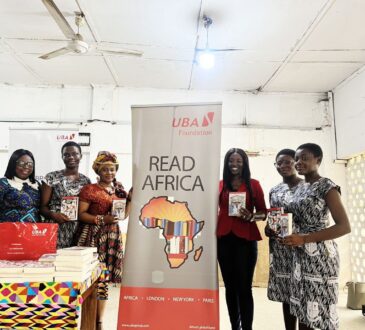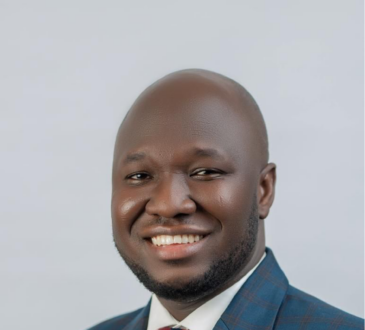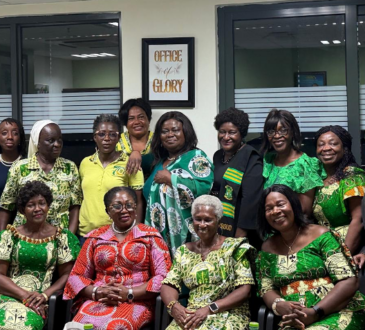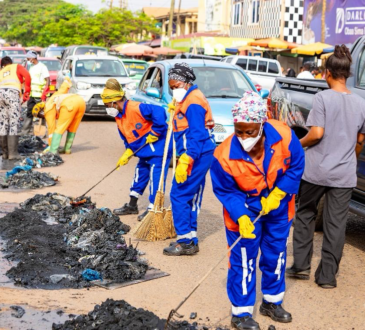
The Inter-Party and Civil Society Relations Directorate of the National Democratic Congress (NDC) participated in the 2024 Political Party Dialogue organized by the UK-Ghana Gold Programme (UK-GGP). The event, held at the Royal Senchi, brought together Civil Society Groups to engage the NDC in its policy formulation process.
The forum’s primary objective was to address Ghana’s current economic difficulties and discuss potential solutions and recommendations. The dialogue provided a platform for civil society groups to voice their concerns and offer insights into the country’s economic woes.
Critical issues highlighted by UK-GGP were the disruption of illegal gold smuggling and gold-based illicit financial flows that fund serious and organized crime (SOC) in Ghana. These activities pose a significant threat to Ghana’s economic prosperity and security.
The UK-GGP outlined several recommendations to combat this issue, by adopting an incentive-based approach to formalizing ASGM activities, replacing force with visible governmental support, and amending Act 703 to implement open competitive bidding for licenses in areas with sufficient geological data to prevent rent-seeking/inefficiency.
UK-GGP also recommends the amendment of the Minerals and Mining Act and provides a threshold on the number of small-scale licenses one miner can acquire to avoid license grabbing, speculation, and inequitable allocation. They also call for expediting the issuance of mining licenses and reducing application backlogs, UKGGP suggests decentralizing the licensing process to District Mining Committees (DMCs), which would evaluate and approve licenses under the Minister’s delegated authority. emphasizing the importance of stringent measures and regulatory reforms.
A highlight of the event was a presentation by the Institute of Energy Security (IES) on the topic “Enhancing Synergy between Ghana’s Upstream and Downstream Petroleum.”
The IES’s presentation shed light on numerous challenges currently faced by the sector, including the underutilization of key assets such as the Tema Oil Refinery (TOR), storage tanks, distribution pipelines, and receiving facilities. They also pointed out Ghana’s heavy reliance on imported refined products and crude oil for existing refineries, as well as inconsistent regulatory frameworks and policy uncertainties
Natural Resouces Governance Institute presented on the Gas Sector Issues and Policy Proposals. they stated that Ghana’s governance structure which vests near-absolute authority in the President to appoint the boards and heads of all SOEs has weakened corporate governance and the efficient operation of state entities including the gas sector.
They also stated the infrastructure challenges in the Oil and Gas sector like the Current gas processing capacity is inadequate to absorb the full volumes of gas production despite the increased uptake of gas from Jubilee and SGN in the last two years. Inadequate network of pipelines to fully monetize gas resources. They stated that between 2010 and 2014, a total of 168,264 MMSCF produced from the Jubilee Field was either re-injected or flared due to the lack of a processing facility. and they gave several policy proposals and recommendations.
NRGI offered several policy proposals aimed at improving the governance and operational efficiency of Ghana’s gas sector. Recommendations included reforms to decentralize authority, enhance corporate governance, and invest in critical infrastructure to better handle gas production and processing.
Jacob Tetteh Ahuno, Programme and Research Officer of Ghana Integrity Initiative, also presented at the forum, focusing on the topic “Anticorruption Recommendations for Political Parties.”
In his presentation, Ahuno addressed various issues, including the need for transparent political party financing and campaign financing. He pointed out that the lack of transparency in political party and campaign financing fosters corruption and undermines the democratic process.
Mr. Ahuno also criticized the current asset declaration regime, noting its deficiencies. He highlighted that the regime is silent on the verification of assets and liabilities, and lacks provisions for publication, monitoring, explicit sanctioning, and other related activities that would give substance to an effective asset declaration system.
A notable presentation was also delivered by Mr. Oppong Kyekyeku Appiah Snr, a fellow from the Centre for Extractives and Development Africa. His presentation, titled “Non-Fiscal Revenue Pathways to Optimizing Benefits in Ghana’s Mining Sector,” highlighted several critical points.
Mr. Appiah Snr’s presentation addressed the gap assessment of Ghana’s Local Content and Value Addition (LCVA) policies, pointing out policy inconsistencies and the absence of an enabling environment. He noted that flagship projects like the One District One Factory (1D1F) initiative do not align with mining sector policies, emphasizing the lack of financing opportunities in local content implementation. The Minerals Commission should start acting as a player in the sector to attract supply chain financing for local manufacturing firms by collaborating with commercial banks in the country, Mr. Appiah recommended. He further stressed the need for enhancing linkages between the mining sector and other sectors of the economy to optimize benefits.
Priscilla Adogo Ahiada, Head of Energy Programme at SYND, delivered a presentation on “Empowering Young Green Entrepreneurs towards Ghana’s Sustainable Development Agenda.” Her insights emphasized the crucial role of young entrepreneurs in driving sustainable development and fostering economic growth.
KASA Initiative Ghana also made significant contributions to the dialogue, speaking extensively on various critical sectors. Their discussions covered Forestry, Environment & Climate Change, Water, Sanitation and Hygiene (WASH), Fisheries and Marine Sector, and Sustainable Forest Management. KASA’s comprehensive approach underscored the interconnectedness of these sectors and their impact on Ghana’s overall environmental and economic health.
Dr. Peter Boamah Otokunor, Head of the Inter-Party and CSO Directorate, and members of the NDC Manifesto Committee expressed their gratitude to the event organizers and acknowledged the NDC’s achievements in various sectors during their administration. Dr. Otokunor emphasized that the creation of the Directorate by President John Mahama was a strategic move to foster engagement with civil society organizations (CSOs). He also highlighted the establishment of the NDC LAB post-2020 elections, a think tank of technocrats designed to assess the state of the economy.
Dr. Otokunor reiterated President Mahama’s commitment to implementing innovative strategies to elevate the country’s standing. He assured the attendees that the NDC is keen to integrate the proposed recommendations into their manifesto, emphasizing the party’s dedication to addressing critical issues and enhancing the governance of Ghana’s natural resources.
By Felix Etornam Tsawodzi







